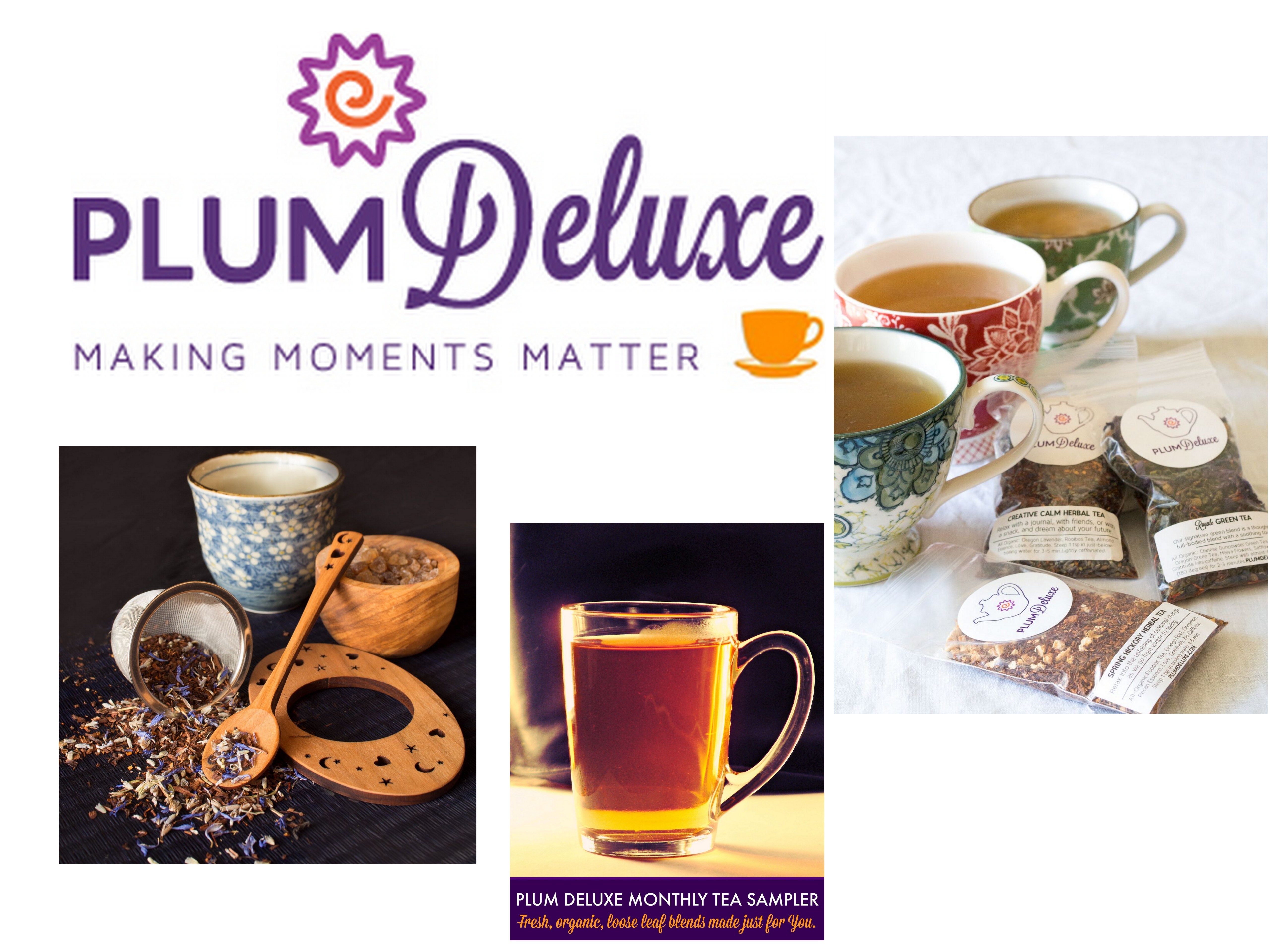Mon, 3 April 2017
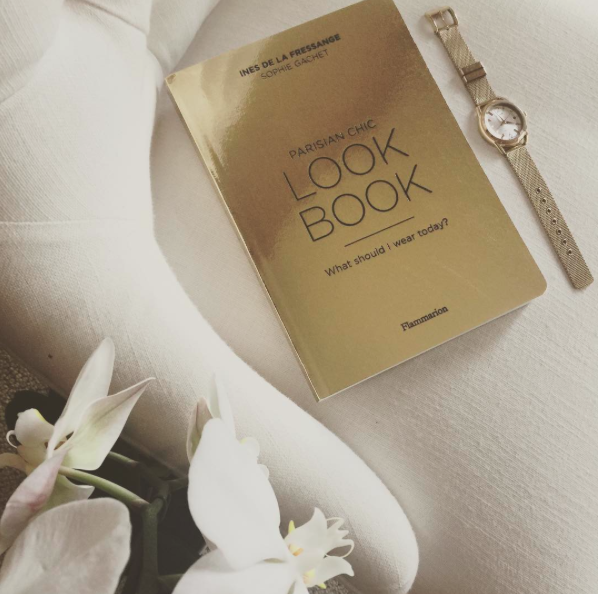 ~The Simple Sophisticate, episode #149~Subscribe to The Simple Sophisticate: iTunes | Stitcher | iHeartRadio
"What's true style? Knowing how to mix the right combinations of ingredients." —Ines de la Fressange, author of Parisian Chic Look Book: What Should I Wear Today? Most of us have heard of and are incorporating into our lives a capsule wardrobe, but as much as we'd love to hire a stylist to tell us what to wear every day and how to style the clothes we've invested in, we either absolutely cannot afford such an extravagance or well, let's get serious. But the truth is, we can do it ourselves. Understanding how to cultivate true style into our lives throughout the entire year is completely possible so long as we learn the necessary tools and fail-safe combinations. Former Chanel model and the epitome of Parisian chic Ines de la Fressange has just released her new book to follow up her wildly successful first Parisian Chic, and in it she does the work of the stylist. Parisian Chic Look Book: What Should I Wear Today? does everything for you except the shopping. With nearly every page in the 130 page book filled with styled outfits and noted for which occasion they would be perfect for, this look book is your guide when you step into your closet. This look book is the finishing touch to building your confidence that you do know how to dress well without having too many clothes to choose from and feeling you have nothing to wear. What I would like to do today is share a glimpse of Ines' suggestions and my favorite outfits, and then I highly recommend you pick up or check out this book. If you are someone who appreciates the classic Parisian chic approach to style, if you adhere to a capsule wardrobe approach and if you want to keep it simple but mix high and low items ensuring you look effortlessly style, take a look inside the book and discover how to become the stylist you've always wanted to hire. 1. Stock your closet with the essentials
Often we have almost everything we need but a few finishing touches are missing. Take a look at her detailed list (above are just the categories) and find what you may need or what to look for the next time you are shopping or a wonderful sale on your favorite designer clothing or accessories offers a beautiful price. 2. Stick to a dress code unique to each general occasion
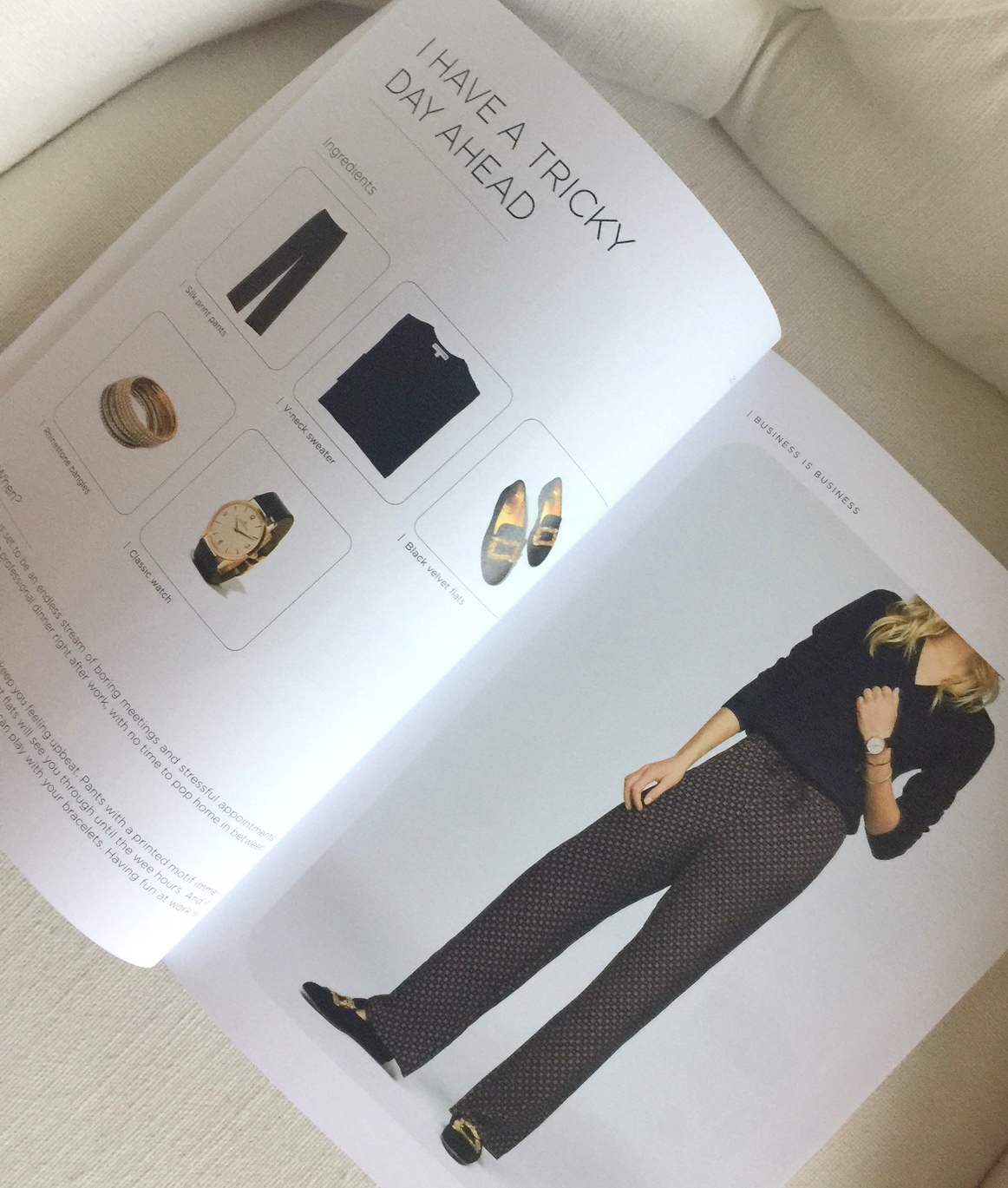
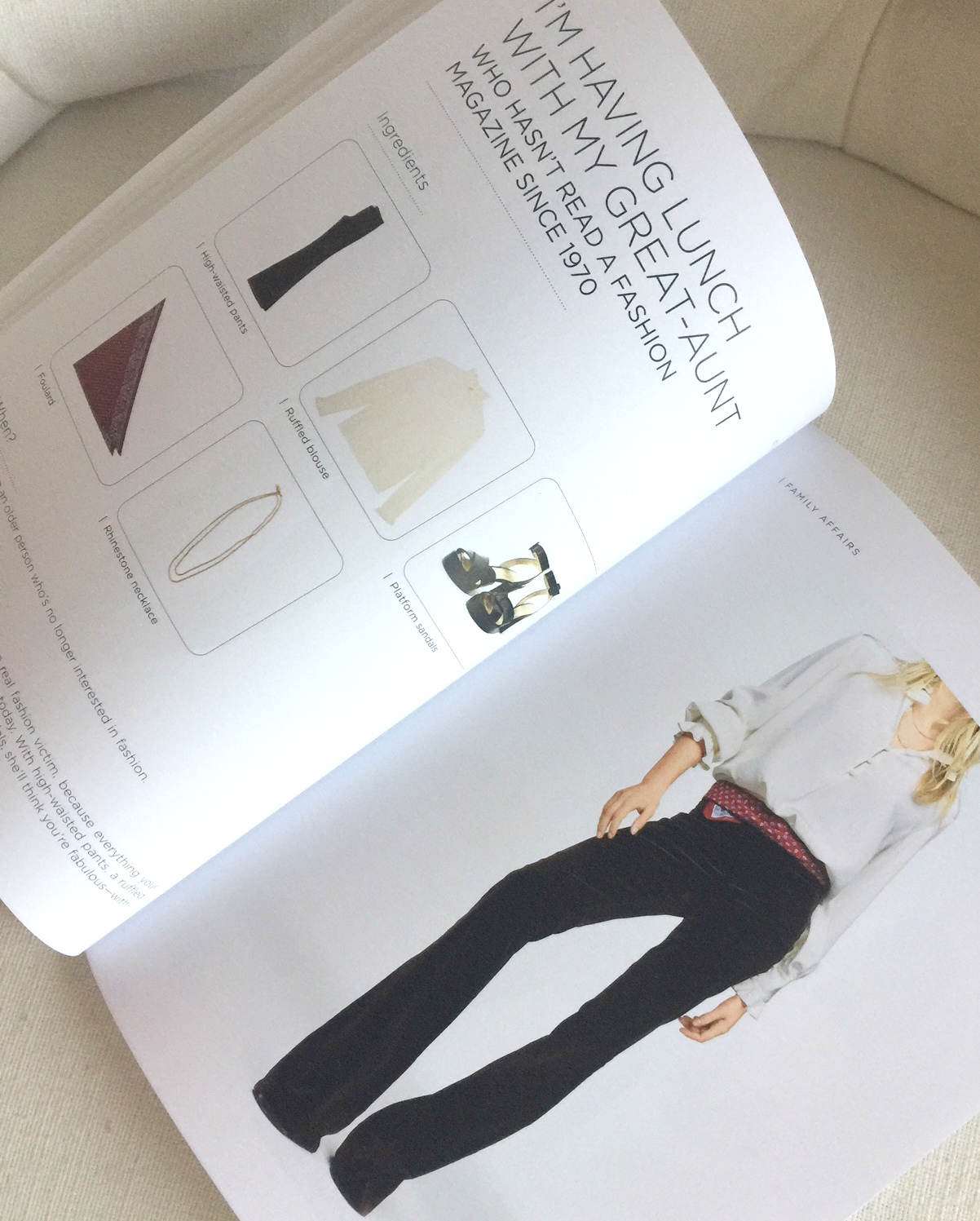

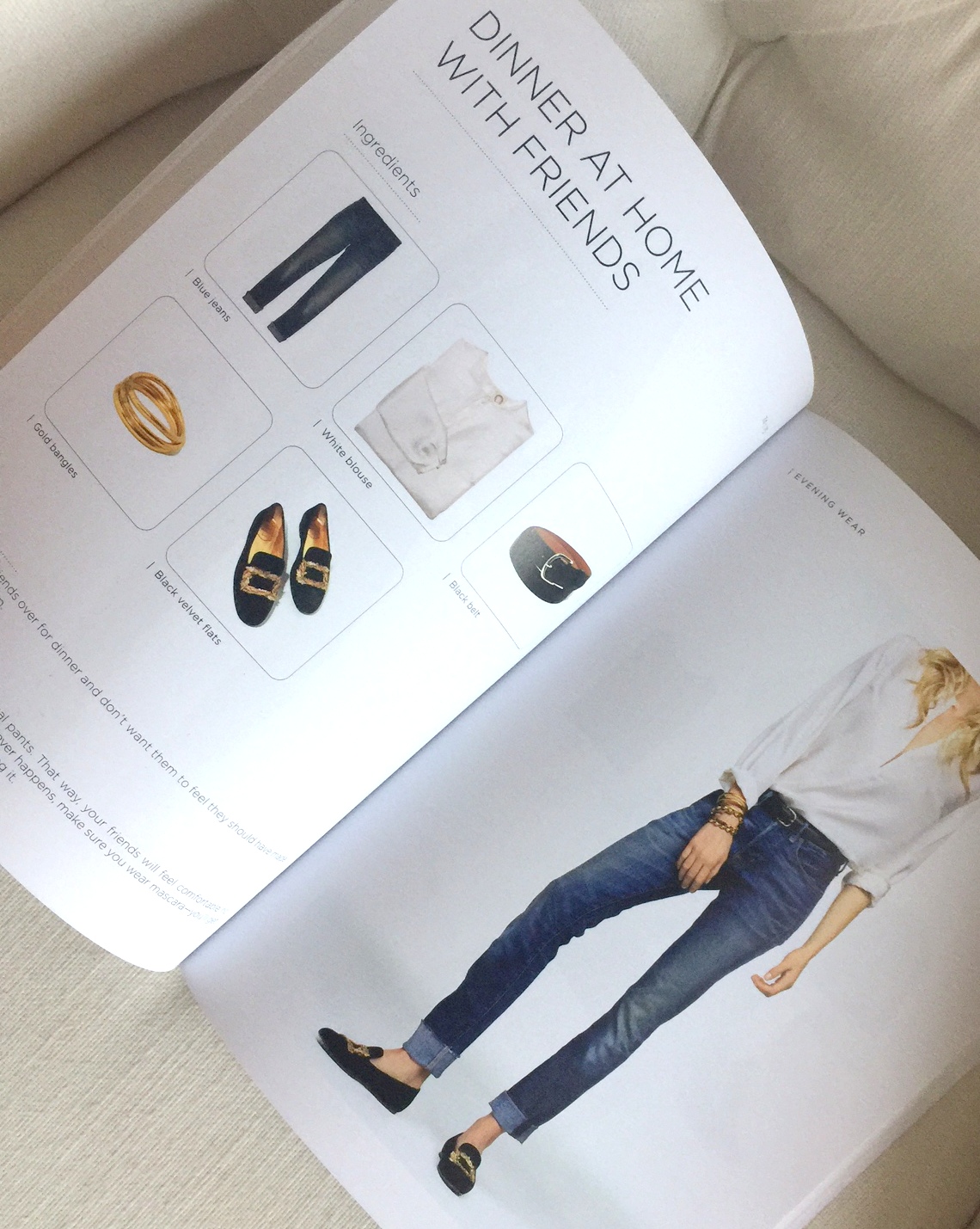

 3. Stick to neutrals One common thread I noticed through all of the items Ines suggests is a neutral color palette. Black, navy, white, khaki/biege, gray, light blue, stripes. While there were a few signature pieces, a sequin gold camisole, printed silk pants, a hot pink sweater and a red saddle purse, these boisterous colors were few, but powerful. The mixing and matching becomes easier when you adhere to a neutral palette that complements your skin tone. Don't deviate from this. For example, the pop of color I often choose is blush pink: my skin instantly looks more bronzed and healthy and it pairs well with everything else in my closet depending upon the season and occasion. Other than that its navy, gray, black, white, stripes and light blue. 4. Finish with few accessories, but don't forget them Each of her looks as you pour through the book reveal typically one piece of jewelry being worn if any and an expected, but signature tote, coat or pair of shoes. 5. Purchase well and don't fuss The key with Parisian chic style is mixing the high and low: a beautiful white silk blouse from Saint Laurent paired with classic denim jeans and costume jewelry bangles. Knowing what you are wearing looks well on your physique will enabled you to say no to extra details and finish with just the right amount of detail. Then once it all comes together, you can relax and enjoy wherever you are headed. 6. Learn the fashion style tricks
A sampling of items that what works for me:
Ultimately, seeing how to pull something together, seeing it on a model is a useful visual we often do not see when it comes to basics and not all in one place. Covered in gold that shimmers, the book will be easy to spot on the shelf as you look to use it again and again and again until these classic ensembles become engrained in your memory. THe most significant take-away for me was a sigh of relief when I saw the outfits. The number of items involved were minimal, the key was quality items paired with finishing touches that worked with the woman's body and the other neutral pieces. So start with #1, begin to build the foundation which is the necessary clothing and then have fun and look forward to stepping into your closet again.
Petit Plaisir:—Tartine All Day: Modern Recipes for the Home Cook by Elisabeth Prueitt 
|
Mon, 27 March 2017
~The Simple Sophisticate, episode #148~Subscribe to The Simple Sophisticate: iTunes | Stitcher | iHeartRadio"Man. Because he sacrifices his health in order to make money. Then he sacrifices money to recuperate his health. And then he is anxious about the future that he does not enjoy the present; the result being that he does not live in the present or the future; he lives as if he is never going to die; and then dies having never really lived." —Dalai Lama Most Sunday mornings at around nine or 10 o'clock you will find me in my living room having just returned from walking my boys, Norman and Oscar, settling in with a pot of black tea, a warm croissant from a local bakery and the Sunday newspapers. Such simple pleasures bring me a priceless amount of happiness, and I look forward to this weekly ritual as I tuck into bed each Saturday night. The recent trending term hygge (pronounced hoo-gah) in the lifestyle publishing industry springs from the happiest country in the world as found by extensive research compiled by the United Nations World Happiness Report. Simply defined, incorporating hygge into your way of living is a choice to encourage the enjoyment of life's simple pleasures. There are a multitude of books focused exactly on how to welcome a hygge lifestyle into your life out on the market at the moment (and these are just a sampling released in the past 12 months). Just take a look below: ~Hygge: The Danish Art of Living Well ~The Nordic Theory of Everything ~Hygge: 25 Secrets from the Danish Art of Happiness, Getting Cozy and Living Well
Needless to say, the attention to a way of life that welcomes in the simplicity and everyday savoring of pleasures and reminds of the gifts a welcoming sanctuary can bring into our everyday lives is something that tickles me immensely. Many TSLL readers have pointed out the similarities between hygge and living simply luxuriously, and after reading two books on the subject, I certainly have to agree. So how exactly do they overlap? How are they similar? Let's take a look: 1. Savoring quality in each arena of life:
2. Cultivating a sanctuary to relax, unwind and rejuvenate 3. Light a candle or two or three 4. Cultivating trust in those you love, in the communities you live and work in 5. Building a life that enables you to feel free, thus realizing you have more control over your level of happiness than you may have once assumed. In other words, you truly can become the CEO of your own life while building and being a partner in your community, home and work place. 6. A strong, respectful support system "meaningful, positive social relationships" 7. Practice gratitude, let go of want 8. Build and cultivate strong, healthy, loving relationships The quality of one's happiness increases with improved relationships, not surprisingly when we make more money. "America has gotten richer, a lot richer, over the past fifty years, but we've not gotten happier." —Jeffrey Saks author of the United Nations World Happiness Report 9. Become a lover of books Discover the pleasure reading can bring when a wide open afternoon, evening or 30 minutes anywhere in your day arises. Pick up a book, snuggle up and dive in to discover something new. Keep the television off, put your cell phone away and get lost, letting go of time. 10. Become a regular visitor of nature "Whether you are sitting by a river in Sweden or in a vineyard in France, or just in your garden or nearby park, being surrounded by nature enables you to bring your guard down and adds a certain simplicity." Meik Wiking 11. Choose to be fully present Put away the technology, allow your mind to be in the here and now and look around you. Savor the sun, savor the company, savor the flavor of the food. Savor the amazing life you have the fortune to be living. 12. Cultivate calm 13. Savor simple rituals The mindset of a market economy versus a social-democratic economy is at once significant and worth contemplating. Often, based on where we live and the culture we are raised in when we see our success based on how others fare as well: in a market economy, it is more likely to be an independent mindset, and in a social-democratic economy, it is more of a collective success one seeks. Ultimately, we only have control over ourselves, but to ignore how our behavior and decisions effect others is to ignore the power of emotional intelligence in our lives. When we consider others in our decision making, it is a means of paying it forward, of cultivating more wellness, kindness and positive behavior that builds each other up rather than tears one another down. 15. Seek internal approval rather than external Refrain from needing to wear labels or purchase more or larger homes, cars, shoes, clothing, etc. A mindset set on fine-tuning one's outer appearance is a person who has not found peace within. When you do have peace within, the external becomes far less important and the once temporary highs are substituted with permanent peace. The primary, underlying similarity that is at the core of living well, living simply luxuriously and thereby incorporating a hygge approach to life is to truly appreciate and savor the life we've each been given now. To drink the marrow from life so to speak every single day. It need not be excessive, expensive or grand. The true pleasures are actually quite simple. It is the moments of sitting next to those you love, letting go of time and letting go of worry knowing you are living well, you're living wisely and you haven't been pulled off track by the marketing masses that merely want your money when superficially they promise you more happiness. They are wrong, you are right when you choose to live in such a way that focuses on your well-being. And well-being cannot be purchased, it must be consciously cultivated, tended to and patiently fine-tuned. ~What Does a Simply Luxurious Life Look & Feel Like? Petit Plaisir:~My Master Recipes; 165 Recipes to Inspire Confidence int eh Kitchen by Patricia Wells |
Mon, 20 March 2017
~The Simple Sophisticate, episode #147~Subscribe to The Simple Sophisticate: iTunes | Stitcher | iHeartRadio"And you, you scare people because you are whole all by yourself." —Lauren Alex HooperThe twenty-first century woman, she has been called on this blog the modern woman, is an independent woman. And while there are many different shades, rhythms and ways of living independently, there are also many similarities. And some of these similarities are misunderstood by outsiders as they expect the traditional response when it comes to the arena of love or they have a misconception that because she is independent she must not want love in the traditional sense. Today I'd like to share 10 truths about independent women and dispel any innocent assumptions that simply aren't true. Love, whether it be romantic, platonic, a love for a passion that we pursue doggedly and without apology is an electric force that provides infinite fuel for life. Love is a necessity when it comes to living a life of fulfillment, contentment and reaching our full potential. And it is the goal of reaching our full potential that is solely at the core and what drives women who are independent. Because reaching our full potential is a unique and original pursuit, what we are looking for when it comes to love, romantic love especially will also be unique, but generally, these truths need to be understood by anyone wanting to be involved, currently beginning to date or having been intimately partnered for quite some time with an independent woman. 1. The enjoyment of her own company is real, but that doesn't mean she doesn't enjoy the company of others Alone time, great amounts or small is a absolute feast for her being. She revels in it, finds immense pleasure in it and doesn't need someone else to entertain her or keep her company. When she shares she will be spending the evening by herself, she will be spending the evening by herself because she wants to and her very busy schedule has bestowed upon her an opportunity that she is ready to savor. Introvert, extrovert, it doesn't matter. 2. When she gives or expresses love or affection, it is real Why? She won't waste time with games or ego-lifting flirtations. She is secure in who she is and doesn't need to drum up interest from others to reminder her of her worth. She knows she is worthy, and more importantly, she respects the feelings of others and doesn't want to lead them on. Because an independent woman relies on herself for her income and fulfillment, she is busy, she is driven and when she welcomes the possibility of a relationship into her life, she has done so thoughtfully. 3. Asking for help is difficult, but when she says she doesn't want it, listen to her An independent woman is willing to figure out her path and then get busy completing the tasks on her own that need to be done. She doesn't reach out and wait around for help. She may pay a contractor, a plumber, an expert in the field she needs assistance from, but rarely does she ask for help from others as she assumes and respects they have busy lives of their own as she does. However, don't be afraid to offer help. The primary reason, as mentioned above, she doesn't ask is because she respects your life and your schedule. She doesn't want to add one more task to your list, just as she doesn't need one more task on hers. Lastly, if you do ask, and she says no, she means it. She's okay with honesty, in fact she demands it and therefore, she practices it as well. 4. She is self-aware and therefore, will not hold on to a relationship if she doesn't see a future or it is a fit that simply won't work Speaking of honesty, she knows what she wants to accomplish. For the most part, she knows what it will take and what she can do. She also knows at this point in her life what works and very clearly what doesn't. And if the fit isn't right, she won't beat around the bush, hanging on to see and hoping that it will iron itself out. In other words, if you are in her life, she appreciates the connection and the partnership that is unfolding and sees potential for both parties involved. 5. Reaching her full potential is always at the core of her being As mentioned above, every woman's full potential will be different. The key is to not to assume anything. Have a conversation, have many conversations. Ask the questions, don't place the stereotype crowns on her head that Hollywood perpetuates. Ask her, does she want to become President, does she want to be a mother, does she want to travel the world helping those in need, does she want to become the next Oprah, does she simply want to write books, walk her dogs and revel in the love she has with her partner? Ask her what reaching her full potential looks like. 6. Friends may be few, but they are mighty The planner is full, goals are clear and days are often long, but she sleeps well and she is excited when she wakes up in the morning, thankful for the opportunities she has in front of her. Because of her full life, the friendships she builds are strong and provide support in one way or another. Quality over quantity as the need for strength is important, the need for trust is vital and with time on short supply, she wants to give fully to those she cares about. 7. Looking for an equal partnership Any relationship will ebb and flow based on the needs of the individuals, but the partnership an independent woman is looking for is not about fulfilling traditional roles. No. It is about setting each other in the relationship free to be themselves. A knowing by one another that there is a level of respect and appreciation for whom each is as an individual and a desire to help each other attain their fullest potential, knowing that the support the relationship provides is part of the equation. Thus, investing in the relationship is crucial. 8. Drama is for television shows and the theater The independent woman, if and when she has time, may watch House of Cards, but she doesn't engage in drama. She may enjoy the reprieve and escape momentarily, but she recognizes the unnecessary burden one puts on their shoulders when they involve themselves in drama with friends, family members and at work. An independent woman seeks to be productive, honest and clear. While she knows how to negotiate, she also understands that people have feelings and keeps this in mind when working with them professionally and personally. 9. Living together isn't off the table, it simply must be with the right person As someone who has never lived with a partner, my reasons were never due to statistics (read this article from The Atlantic), but rather because I simply didn't want to live with them which is probably why the relationships didn't last. Living together is an opportunity to connect more intimately, but only when the independent woman can trust her partner will be her partner, not her roommate, not someone who will add more tasks and chores to her list. In fact, living together, just as finding a partner that meshes well with you, should be an enhancement, not a burden to the life you already enjoy living. 10. We are looking for real love Living alone is a wonderful experience, and once this truth is realized, it makes it easier to determine if you truly are interested in someone. Why? To change or tweak the life that works exceptionally well for you is a significant decision. Needless to say, the person who provoked such contemplation must be someone unlike most others you have ever met. The key to living well no matter where you find yourself in your life is to enjoy your own company, and that is something independent women do exceptionally well. And when you enjoy your own company, you are demonstrating you are secure in who you are, your strengths and while you may not applaud your weaknesses, you are aware of them and don't let them hinder your progression (in fact, you may take time to address and improve them). And because you are secure and therefore self-confident, you are better able to recognize the same characteristics in others and quickly dismiss of those who are not, and therefore would not be compatible or able to be the partner you are seeking, if your are seeking one. The funny truth is, get on with your life. Get on with pursuing your goals and reaching your full potential. Get on with living and living well. Whether you intrigue someone or not shouldn't be the goal. The goal should be internal. Julianna Margules famously shared on CBS Sunday Morning that at the age of 35 she told her mother she didn't want to get married or have kids because she loved her freedom. Epitomizing the independent woman, she lived her life and in so doing she met her husband at age 39 as she was going about living the life she loved, never with the goal in mind to meet him. Real love enters our lives in a variety of ways: through our careers, children, pets, hobbies, service, families, our partner, etc. But it should always begin with having sincere love and appreciation for ourselves. And independent woman understands this. She may struggle with who she is becoming as it is new and seems to regularly be changing as she grows and strives, but once she figures out who she is at her core, that truth doesn't change. And knowing that truth brings a comfort and a sanctuary that nobody can take away. ~SIMILAR POSTS FROM THE ARCHIVES YOU MIGHT ENJOY: ~How to Become a Woman Comfortable in Her Own Skin ~Why Not . . . Live Alone for a While? ~Why Not . . . Revel in Being a Woman? ~View all FEMININITY Posts in TSLL Archives here. Petit Plaisir:~Radishes with Baguette, Butter and Salt - click here for the recipe
Direct download: 147IndependentWomanLove_-_31917_1.41_PM.mp3
Category:relationships -- posted at: 1:00am PDT |
Mon, 13 March 2017
“Life is really simple, but we insist on making it complicated.” ― ConfuciusHaving never experienced a particular event, feeling or sensation, it can be hard to trust that attaining what we have marked as our goal as something other than difficult to achieve. After all, if it were easy, we would have experienced it by now. But what has lacked in the past is the proper recipe. What I mean by the proper recipe is if we are trying to make mayonnaise (which requires few, but specific simple ingredients: 1 large egg yolk, 2 teaspoons lemon juice, 1 teaspoon Dijon mustard, ¼ teaspoon kosher salt, 1 teaspoon cold water, and ¾ cup neutral oil such as safflower or canola), but if we pulled out a recipe for a vinaigrette (extra virgin olive oil, Dijon mustard, balsamic vinegar and black pepper), no matter how hard or long we whisked the ingredients, we will never make mayonnaise. This seems obvious, but often in life we are using ingredients (whether it be particular people, misunderstood facts regarding science, neuroscience and biology or confusion when it comes to math) that cannot add up to what we desire no matter how hopeful we are. But when we do finally have the proper ingredients, in other words quality ingredients and stop trying to force an apple to become an orange, the results we desire materialize without involving much effort. And in that moment it seems almost miraculous as we've been thwarted for so long so often in our previous attempts. Today I've made a list of eleven life skills I have found to be far easier than I had once thought. Perhaps you have a few others you would like to add. And if so, please do share in the comments. On Sunday I made my first Niçoise salad, and of course, boiled eggs are a quintessential ingredient. Wanting a boiled egg in which the white was solid, but moist and the yolk was runny, I looked to Julia Child. On page 118 in her iconic Mastering the Art of French Cooking, the recipe for an alternative to poached eggs (as I wanter to cook the eggs with the shell on) can be found. Put simply: bring water to boil, place eggs in the boiling water for six minutes, pour out the hot water and run cold water over the eggs for one minute. The perfect boiled egg for salads, breakfast or a mid-day snack. View my recipe for soft boiled eggs and soldiers here. 2. Meditating For years I thought something was wrong with me for not being able to mediate. I assumed, errantly, I had to be able to sit without thinking for endless amounts of minutes (20-30). I was wrong on two points: It's not about stopping your thoughts, but recognizing when they wander and bringing your mind back to the present and longer doesn't mean better. Five minutes is fine, simply observing and knowing your mind is wandering is a significant and successful mediation experience. Learn more about who to incorporate mediation into your daily routine (even if daily is a hope and the reality is a few days a week - the difference is quite positive on your overall quality of life.) 3. Asking clarifying questions Just ask why. Most likely you are not the only person in the room who did not understand the allusion the speaker or teacher made. Ask for clarification. Don't apologize for not knowing, simply ask what they were referring to. Confidence of a student and their sincerity to learn is revealed in asking for further understanding. Be a student of life and regularly ask questions, especially of people who are experts in their fields. Even if they do not know the answer, they would be the best persons to point you in the right direction. Often an expert takes for granted what the listener knows. It's not a negative thing, it's a reality when someone has been working with a particular idea or content for some time. Their perspective has shifted. So simply ask, and no doubt others in the room will appreciate your courage. 4. Letting go of what no longer supports the life you are building Looking at the possibility of letting go of a way of life, a person, a job or anything that you have become accustomed to is a thorny prospect. But the actual letting go and moving forward is easy. It's the decision of what to let go that takes time and careful examination. For when you finally let go, it cannot weigh you down and you begin to feel a lightness that you could never have known prior to letting go. 5. Welcoming love into your life When we have been mistreated, taken advantage of or been around insecure individuals and errant assumptions about what love is (co-dependent, needy, clingy, formulaic, etc.), we can understandably be cautious about believing genuine love exists. Genuine or real love is something we discussed here and here in-depth, but the good news is that it does indeed exist, and when you're ready and able to recognize it, even if you don't believe it when you see it or experience it, welcoming it into your life is easy. Put down the armor, put down the cynical protections you've been using, stop the mishegas thinking and let yourself be loved. Just be you. Stop assuming the worst, stop thinking about anything that may thwart love's growth, and when you do that, love walks in. 6. Broadening your vocabulary Read. Read often. Read a little every day from any source that piques your interest. Look up one word a week that you run across and do not know. Listen to the diction being used in academic, political, historical films, newscasts and productions. Be curious and read and watch and look up what you do not understand. The more precise your vocabulary, the better able you are to effectively communicate and the more heightened your ability for emotional intelligence. 7. Backgammon My favorite board game to play is backgammon. While I have always wanted to learn chess, I have yet to do so (of this feat I will accomplish at some point in my life, I am nothing but determined). But since I was a young girl, backgammon was the game my father and I would play, and we still do when I return home for holidays. It's simple: move all of your checkers to your home base and remove them before the other player. Yes, there are other strategies and details to consider, but for a board game that looks fancy when it is displayed, it truly is quite simple. Discover the rules here. 8. Saving money for retirement Set it and forget it. Set up an automatic pay reduction each month to be withdrawn from your paycheck. The sooner you do this is your career, the less you will pay no mind to the money that is not going into your checking account for the present moment. 9. Practicing self-compassion The patient is you. And the attending is you as well. Treat yourself the way you already treat those you care about. The love you are able to give outwardly becomes strengthened when you have been giving the same compassion to yourself regularly. Learn more about self-compassion here in episode #122 of the podcast. 10. Improving your health and your skin Yes, using particular moisturizers, sunscreen and oils do indeed make a difference, but the cheapest and simplest way to improve your health (ridding your body of toxins) and enable your skin to look radiant is to drink a glass of water before you go to bed and when you wake up. In between, make water your drink of choice. Hydrate, hydrate, hydrate. 11. Staying healthy and trim It's less about your activity and more about the fuel you feed your body. However, physical exercise reduces stress and keeps the mind balanced. Back to the eating component: Eat a well balanced diet (knowledge of what you eat and what it does for your body is key), don't deprive yourself, moderation. And as far as exercise, simply walk 5 times a week 20-40 minutes, add some weight bearing exercises two times a week (strength, pilates or yoga). The take away I have discovered is often it is our approach that is thwarting the success, happiness and contentment we seek from materializing. And the problem is that we are not better informed on how to actually attain what we seek. Make sure that anything that is not working at the moment doesn't actually have an easier solution. Are you using the proper ingredients? Do you have the right recipe or did the pages stick together and you, like Rachel in FRIENDS accidentally make a dessert truffle with ground beef? The right recipe can make all of the difference. ~SIMILAR POSTS FROM THE ARCHIVES YOU MIGHT ENJOY: ~Small & Simple = A Grand & Full Life Petit Plaisir~Victoria on PBS, Season 1~Queen Victoria's diaries made available to the public
https://youtu.be/rKONm_Cy39s
Image: source
|
Mon, 6 March 2017
~The Simple Sophisticate, episode #145~Subscribe to The Simple Sophisticate: iTunes | Stitcher | iHeartRadio"The act of responding requires one to look at the circumstance, identify the problem or situation, hear what is happening and reflect . . . What matters is that you stopped and put an effort to think and suspended judgment. It is a conscious act and shows that you are willing to listen or observe. This ‘gap’ between the circumstance and your behavior is what contributes to gaining a sense of control in your life." —author Debbie Hampton Responding thoughtfully to an interviewer's questions versus reacting spontaneously to an inflicted, unexpected pain whether a paper cut or something more severe. The physical examples shared reveal the human responses: the former - responsive, and the latter - reactive. Responding is a conscious decision whereas reacting is instinctive and done without forethought. And while reacting in emergency situations involving life and death, to scream, run and protect one's self is primarily and understandably about survival, it is when we react rather than respond in everyday situations that we inhibit the potential outcome. Let's look at it more closely. When we choose to simply react to what occurs in our lives, we behave defensively. Sometimes defensive behaviors take the form of blame, scapegoating or taking revenge. Stephen Covey describes the difference between reactive and responsive individuals quite well. “Reactive people are often affected by their physical environment. If the weather is good, they feel good. If it isn’t, it affects their attitude and performance. Proactive people carry their own weather with them.” In essence, choosing to be responsive versus reactive is to take charge of your life, to be the hero/heroine, to be the person who recognizes everything will never be in our control, but our response to circumstances is. Choosing to be responsive is taking responsibility of our lives. Recognizing the power of our words, our behavior, our tone, our delivery, our volume, our timing, make a difference to those in our presence. On the other head, when we react we actually aren't choosing. Rather we are allowing our reptilian brain, the oldest part of our brain, to take control. The reptilian brain is all about the individual and survival: movement, breathing, circulation, hunger and reproduction, territory, and social dominance. But the gift that humans have as well as other highly evolved mammals, is we have two additional brains: the mammalian brain or limbic system, which is highly reactive as it is subconsciously responding to temperatures and hormones thus involves our emotions and feelings, and the neocortex, the thinking part of the brain, in other words where our capability to respond rather than react derives itself. The third brain, as was just mentioned, the neocortex, is the key to gathering information from what we are seeing and feeling, and putting it into context. The neocortex digests the necessary information, understands the world and the fact that there is a future beyond this moment and is capable of making sound decisions. Humans's neocortex is the most highly developed of all primates, and therefore, when we recognize what we have the potential to do, we must utilize this amazing strength of mind. Let's take a look at what responsive vs. reactive looks like in our everyday lives: ~Event: you sleep through your alarm - responsive: edit out timely morning rituals, access what the necessities are to be your best at work (eat well, dress appropriately, look presentable); reactive: scurry furiously around the house setting a mood for anyone in the household to become more frazzled and storm out the door with nothing complete or having prepared you efficiently for the day. ~Event: a colleague or boss states something unexpected that takes you aback or hurts your feelings - responsive: choosing to pause and take a breath you think about the best response, if one is needed at all, and do so calmly; reactive - fall back on your default response to critical, hurtful comments and either don't stand up for yourself and continue to agree or become snarky and sharp in your retort. ~Event: your significant other forgets an important date or occasion - responsive: collect your thoughts, come to understand why or if you feel hurt and determine how to calmly express how you feel during a time when both can talk; reactive - as soon as you see or hear from them you either give them the cold shoulder or speak with a hurtful tone and words. ~Event: a friend texts or emails to invite you do something - responsive: read the text, assess your interest and then consult your calendar or other people's calendar if it involves or effects them, then return the text/email either way; reactive: either respond immediately or not at all ~Event: the line at the grocery market is long and the person at the counter doesn't appear to know how to work the machine - responsive: assess your situation - do you have a time constraint? If so, can you move to another line. If time isn't an issue, observe the wait in line as an opportunity to take a few deep breaths, relax or check your email recognizing that either eventually the line will move or the management will open another line. The paradox of choosing to be responsive is that it requires of us to be both present and aware of the future. We need to both be cognizant of the effect of our actions, whichever we choose to take and we need to know what actions are best in the situation. Fittingly, when we react, we are reacting out of fear based on what we have been genetically disposed to do to protect ourselves. But as we know, we live in a civilized world. It is a civilized, thoughtful approach that will yield us the best results. It is not easy to know how to respond best in every situation. However, being self-aware and emotionally intelligent help tremendously. As these two traits are skills, so too is knowing how to respond well. It will take practice, it will require of us to be able to pause in nearly any situation before speaking or acting, and in its own small way, meditation plays a helpful role as well. When we respond to life:
No doubt all of us, and I know I can include myself in this category, have reacted at times in our lives when we should have responded. And upon reflection, we can probably pinpoint those events quite well usually based primarily on how we felt after we reacted rather than responded. We may have wished we wouldn't have said something, chosen a different tone, or taken a deep breath and simply removed ourselves from the situation until we knew how to respond well. It is just these moments of experience that will actually make it that much easier to respond rather than react as you move forward. Because when we know first-hand the negative experience that can result from reacting, we are far more motivated to make sure we respond in the next similar situation. Our lives provide guidance even through the moments we wished we didn't have to endure. As a student, all we have to do is vow to learn the lessons we are given. We cannot know how to do something until we are shown how. Now we know how to respond rather than react. Now we know the difference and the benefit of embracing responsiveness versus defensiveness. Petit Plaisir:~The Magnolia Journal: Inspiration for life and home
~Joanna & Chip Gaines of HGTV's Fixer Upper ~The bed & breakfast in Walla Walla, Washington, mentioned in today's episode: Green Gables Inn |
Mon, 27 February 2017
~The Simple Sophisticate, episode #144~Subscribe to The Simple Sophisticate: iTunes | Stitcher | iHeartRadioRecently a good friend of mine who is learning French as well, and inspires me with her advanced abilities, asked how my learning was progressing. Disappointed even to say it out loud, I stated I haven't been studying regularly. And while that is entirely true, I find myself playing with the little bit of the language I do know unconsciously throughout my days and in conversations and activities spent with those who know the language. I continue to share and be enticed by French-themed posts, articles and books, and have shared much of what I find on my Twitter feed, but it became glaringly apparent that I haven't written a Francophile post/episode in quite some time. However, as my recent daily schedule has shifted ever-so-slightly to make time for a special individual in my life, I am even more appreciative of the simply luxurious approach to living. In fact, it is the approach I write about here on TSLL and share on the podcast that enable me to let go, appreciate, and savor the everyday moments and unexpected extraordinary moments in the ordinary routine. The realization of the approach of letting go of the unnecessary and focusing on the necessary being the key to easily flexing with life has inspired me to ardently protect and cultivate further these aspects, many of which are inspired by what I appreciate about the French, and some would argue western-European culture. 1. Depend on flavors from herbs, spices and ordinary cooking staples to enhance the flavor of food After a recent conversation with an acquaintance from Belgium, I was reminded of the flavorful approach the French and other European countries take to cooking. First of all, they cook, they play with the food and the flavors and they don't bury their food in thick, sugar-laden sauces. The simple sautéing of garlic and shallots in olive oil to provide a flavorful aromatic base or finishing with lemon to maximize the flavor. How about adding some thyme or rosemary and don't forget the salt and pepper while you are cooking. 2. Discover the pleasure of thoughtful conversation; let go of small talk Part of being a good conversationalist is caring about what your fellow-converser is saying. Secondly, it requires of both to let go of where the conversation might lead. This is not easy for goal-driven, busy Americans. We want to accomplish something, complete it and move on. However, deeper, more intimate relationships cannot be built on demand. Slow down, relax and let the conversation flow naturally. Forget looking at the clock and just enjoy the moment. 3. Cook at home unless a restaurant can do it better Stock and prepare a kitchen that lends itself well to cooking whatever may be in the refrigerator on any given night. Make sure your Épicerie is properly stocked and the necessary cooking utensils are at the ready. Then, begin to experiment. Initially, this can be intimating, but with advice from those who know how, observation and practice, you will be whipping up delicious, simple, satiating meals Monday through Sunday if you so desire. (Learn more about how to become a cook in your kitchen here and here.) 4. Reexamine your diet. Eat flavorful, satiating food rather than empty calories. Eating well involves an appreciation of the food your are eating as well as respecting your body. We shouldn't have to swear off the delicious in order to tend to our cholesterol, etc. Moderation is the key and that requires of each of us knowledge about how the foods we eat affect our bodies. While eating is necessary, doing so mindlessly shouldn't be part of our approach. For example, reduce the soda intake and increase the fruit and vegetable consumption. 5. Savor a glass of wine with a home cooked meal, any day of the week To complement, not to cloud. Wine with dinner, a beautifully thoughtful dinner carefully prepared and presented deserves a savory partner in the form of a glass of wine. Sip, nibble, slow down and savor the culinary moment in front of you. 6. Reduce refined sugar White sugar, white flour, packaged, processed foods with additives. In other words, know what you are putting into your body and what those ingredients do to you body. (Read more here about my January - one month resolution to reduce or eliminate refined sugar.) 7. Think for yourself Have an opinion grounded in fact. Take the time to be aware of the world around you and refrain from rash assumptions. Being tactful in your approach and being aware of your audience reduces the need to be politically correct. Rather be honest, thoughtful and open to discussion. 8. Fall in love with daily rituals From my morning ritual breakfast of steel oats to my Friday evening unwind that begins with a long walk with the boys, cultivating daily, even weekly and monthly rituals gives us something to look forward to regularly. As someone who loves to step into the kitchen and prepare a meal, this daily ritual is something I enjoy beyond measure. Maybe for you it is your weekly yoga class or sitting down with the newspaper or a new magazine. Whatever your rituals are, protect them and cherish them. 9. Hydrate, hydrate, hydrate In #11 below, skincare will be discussed and part of an effective skincare routine is drinking water. Keep the consumption of alcohol and sugar drinks low and making water your drink of choice. 10. Treasure the dining experience Sit down for meals, set the table, turn off the television, converse, slow down. Add some flowers to the table to make it inviting even when not in use. Create a space that beckons to guests, asking them to sit down and enjoy a memorable moment. 11. Master a skincare routine Last month I shared with you eight of my favorite skincare products. Some items are inexpensive and some are an investment. However, the attention we pay to our skin is not a vain task. It is a task modeling respect for ourselves and the visage and therefore, the woman we present to the world. Figuring out the skincare routine that will work best for your skin and age will take time and will in some aspects be an ever evolving process, but most items you discover that work for you, will work for you throughout your lifetime. Go, explore and then, pamper yourself each day. 12. Embrace the capsule approach to style Less is more and simple, well curated style speaks volumes, beautiful, powerful volumes, about the woman wearing the clothes. Learn more about the capsule wardrobe approach here. 13. Reserve social media for what inspires you The reason I follow the Instagram accounts I do is to tap into inspiration, beauty and a reminder of all that is full of goodness, diversity and unexpected magnificence in simplicity that surrounds us each day. Rarely do the accounts I follow include selfies, but rather city and nature scapes, a creative fashion combination, books, museum exhibits and vignettes of my favorite places around the world. Why not share with the world what inspires you and never know who will be moved. 14. Let go of trying too hard and begin to trust yourself Last Monday morning I woke up to sunshine and blue skies in Bend, Oregon. The birds were beginning to chirp and the snow was gradually melting. I looked outside and I just smiled. Sometimes, we get in our own way of savoring the gift that is life. In all of its simplicity, for some reason we think it has to be hard, and if it's not, we make it so by over-analyzing, doubting, sabotaging and over-extending ourselves. Life and how we exist in it is simple, and it begins with being present, savoring the everyday, listening to yourself and adjusting to let go of what doesn't serve you and seek out what does and how you can contribute positively to the world. The everydays are the best part. And while it is a grand and necessary task to set goals, set them and then focus on what can be done today, allowing the unexpected to occur and dance with the days as they unfold. 15. Savor a piece of dark chocolate regularly Whenever I share my daily ritual of eating a dark chocolate truffle with a cup of hot tea each evening I do not partake in dessert, some nod their head and contemplate adding it to their routine and others chuckle at its either decadence or simplicity. Either way, I love this daily ritual and have been incorporating into my life since near the blog's commencement. The powers of dark chocolate are subtle, yet powerful and the flavor is magnificent. 16. Keep your Sundays sacred Speaking of rituals, one of my favorite rituals takes place on Sunday (last week it took place on Monday due to my schedule, but I made sure to savor it all the same - see below). The Sunday newspapers arrive (three in total), the hot tea is poured after a long walk with the boys and a croissant is often part of the moment as well. Hours can pass before I've made it through all of the intriguing articles. No matter how you prefer to spend your Sunday, protect, guard it and remember that doing so is an investment in the quality of your life and specifically in the kicking off of the week to come, ensuring it has its best chance possible to be a week to enjoy. ~The New Essentials of French Cooking via The New York Times~ 17. Think critically A few years ago I shared a post inspired by a book titled The Thinking Life: How to Thrive in the Age of Distraction . And in sharing and in teaching rhetoric in my second job that isn't blogging, I continue to be more convinced that the thinking life is the best way to live. Taking in all that we are exposed to can be overwhelming, but knowing how to do so effectively will enable us to live well. By applying the tools of rhetoric established by Aristotle to examine any piece of information that we come across, we can make sure we are not being led around by the nose and are indeed thinking for ourselves. 18. Revel and appreciate your uniqueness America is a self-help culture, and while there is absolutely nothing wrong with continuing to grow (see #19), not believing we are enough or not accepting ourselves for who we are in this moment, right now, is not easy for many of us. After all, if we could just lose those last few pounds, if we could just earn a slightly larger paycheck, if we could just fix our relationship status, focusing entirely, constantly on these "small" changes robs us of the now. And who you are right now, however flawed, is a beautiful thing. 19. Invest in Intellectual Wealth Make learning one of your favorite pastimes. Whether it is learning how to skate ski (as I did this winter season for the first time), learning how the three branches of the U.S. government work regarding checks and balances, or learning how to cook Sole Meunière. Tickle your mind and follow your curiosity and you will always find youth to be alive within you. 20. Quality over Quantity in all things The following 19 ways to incorporate the French culture into your everyday life, at their core, involve appreciating the experience and allowing what works well to exist without the excess. Quality, quality, quality. Above all else quality. And what works well for you may not be what works well for someone else, so what each of us chooses to invest in will indeed be different. But if your goal is to build a life that enables you to enjoy the everyday, and not constantly be dreaming about tomorrow, then your tomorrows need not to be worried about for you are ensuring now, today, in this moment, that they will be magnificent as well. ~SIMILAR POSTS YOU MIGHT ENJOY FROM THE ARCHIVES: ~Why Not . . . Be Fascinated by the French Culture? ~8 Ways to Master the French Mystique ~The French Way: How to Create a Luxurious Everyday Life (podcast #23) ~Petit Plaisir~The Good Fight on CBS All Accesshttps://youtu.be/ANNySAosDGs Image: source src="https://html5-player.libsyn.com/embed/episode/id/5109889/height/90/width/700/theme/custom/autonext/no/thumbnail/yes/autoplay/no/preload/no/no_addthis/no/direction/forward/render-playlist/no/custom-color/a8c7e4/" height="90" width="700" |
Mon, 20 February 2017
|
Mon, 13 February 2017
~The Simple Sophisticate, episode #142~Subscribe to The Simple Sophisticate: iTunes | Stitcher | iHeartRadio"Individuals can take hold of [style] and make it their own. Style is about an individual and fashion is about an industry and [fashion] runs on insecurity." —Stacy LondonNew York Fashion Week motors on as I tape this week's podcast, and for me, it is holiday and a celebration of sorts. While many trends will be on display, there will also be items that will speak to me as I continually hone my signature style. The priceless gift that style offers is being available to anyone. Each of us has a signature style should we choose to understand what it is. For each of us, this signature style will evolve as we too evolve as individuals. Therefore, the good news that Stacy London shared in a recent interview on Refinery29's Unstyled podcast is true, "Style is possible for everyone." Fashion, on the other hand, asks of us, and sometimes it feels as though it is demanding, to buy, to spend and spend again each season, attempting to keep up with the industry. But by simply understanding the difference between style and fashion, we can better appreciate and carefully select beautiful additions to our wardrobes that will enhance our style and not hinder unnecessarily our budget. "In place of style we have honored Merchandise. Clothes. Style, on the other hand, doesn't demand a credit card. It prospers on courage and creativity." —Hara Estroff Marano Courage and creativity. While it may be easier to pull on a ratty tee shirt and slip on loose, battered denim, choosing to craft your signature style offers a variety of benefits. And no, it doesn't require a gloriously flush bank account, but yes, it will require time, patience, thoughtful contemplation about who you are and what truths about your identity you want to reveal to the world. Owning your style is not for the faint of heart. No doubt it would be easier to revert to our youth when we were children, so young we couldn't dress ourselves and allow our mother's to make the decision, but then it wouldn't be our voice we were expressing. Often that is what fashion does, it tells us what to be; it tells us how we should look and by mindlessly following trends, we lose our identity. While clothing is reflective of the current culture, simply look back on your middle school and high school photographs. What did the clothes you were wearing reveal about you? Each of us will see someone different. Some of us will want the courage and confidence we exuded in high school while others will see a clone of the peers that surround them. As I have been pouring over each collection as it is revealed in New York these past few days, I am reminded of my vast ignorance in interpreting what I saw years ago and acknowledge how much more I need to learn; however, as I rest somewhere closer to the latter than the former, I enjoy each new collection like a short film. What is the designer's message, what was their inspiration, what am I drawn to, why am I drawn to it? Victoria Beckham's fall 2017 collection walked the runway on Sunday (today, just hours ago as I type), and it spoke to me. The hues, the lengths, the proportions. Nearly everything echoed the style that is me at this moment in my life: comfortable, yet elegant, feminine while ambiguous, modern inspired by classic and simple while being utterly luxurious. Can I afford Victoria Beckham when the line becomes available? No. Maybe, if the items go on drastic reduction next winter, but even then, most likely no. However, I wasn't considering buying her clothing, I was drawing inspiration. What do I have in my closet now (I do have a few) that fit her template? What items do I need to complete the look? The key understanding to differentiate between style and fashion is that style speaks your language to the world, fashion is in a tongue that is someone else's asking you to learn and be the follower. Style never follows, but is rather inspired by what excites them, speaks to them and then interprets it for themselves. Let's take a look at nine ways understanding how this difference and embracing and acknowledging your own style will change your life in magnificent ways. 1. Make a statement, reveal your identity"Our wardrobe is our visual vocabulary. Style is our distinctive pattern of speech, our individual poetry." - Hara Estroff Marano As Marano reminds, style is our own unique language, a dialect of fashion that we make our own so to speak. When we first learn how to speak it, we may feel intimidated to show it to the world, especially if it is vastly different, but the more we communicate confidently, the easier it becomes to step out in our own style each and every day. 2. Exudes security in one's selfAn individual who is not afraid to take the time to pull a thoughtful wardrobe together understand the power of clothing. An individual who dresses in such a way that allows the person, themselves to shine, exhibits self-awareness and self-knowledge; two traits that take time to cultivate. And when an individual exudes these qualities it becomes clear that they are more secure than not in themselves. Sure, we all have insecurities, but part of embodying self-awareness and self-knowledge requires valuing yourself and in order to value yourself you must have at least a modicum of comfort in who you are without the external world telling you. That is security, not insecurity, that is being strengthened, and that is attractive. 3. Reveals disciplineHaving style requires discipline. Discipline to say no to the trends no matter how much fun they may first appear all the while knowing our individual body, lifestyle, etc. wouldn't allow the woman to shine her brightest. Discipline is also revealed as to how we shop, being patient but determined. Knowing what we need in our wardrobe and taking the time to find it, perhaps tailor it in some instances and care for it properly. Discipline in how we invest, knowing the power of quality over quantity as well as cost per wear. 4. Presumed to be a person of interestWhen we dress well, we suggest, however subtly, that we matter. And while the clothes we wear and the clothes others wear do not determine our placement or worth, human beings are visual people. We make quick, subconscious judgments about people, and yes, first impressions matter. Dress well and cultivate assumptions that work in your favor. 5. Separates you from the crowdDressing to stand out should never be the goal as it may push you to deviate from your true self, but if you dress well in a manner that aligns with who you are and you do so consistently, it will separate your from the crowd. Dressing well, no matter how casually or formally, involves not necessarily the label that is donned, but knowing how to pull together an outfit that looks good on your body, with your skin tone, hair color, expectations of tasks, etc. And as mentioned in #2 reveals your quiet confidence which brings ease to those around you. 6. MemorableWearing a uniform, a signature uniform, provides a simple decision when stepping into your closet. Maybe it is the color palette you choose from, maybe it is the skirt lengths and styles or maybe it is combinations you always gravitate toward. Once you find a style that works for you, stick to it until it no longer does. (I share a few of these examples for myself on the podcast). In doing so, people will remember you. Maybe it is something as small as an individual accessory that you always wear with your clothing, but own it. And when you do, with regularly wearing of this uniform, accessory, etc. you become memorable. Think Carrie Bradshaw and her flower broach or The Good Wife's Alicia Florick in Oscar de la Renta suits. Memorable. The shows are long gone, but the signature styles are remembered. They were worn well, they were worn with confidence and we saw them regularly. 7. Each of us can create a unique identity"[style is] something recognizable and yet at an unexpected angle, with a surprising twist that both reflects someone's personality and expresses that personality to the outside world." -Joan DeJean, a professor of French language and culture at the University of Pennsylvania The signature item discussed in #6 begins to establish our identity in others' minds. And while we are not directly dressing for others, we are creating an identity that is memorable. Interestingly enough, our identity will evolve as we evolve. That is the beauty of style. When we grow, our style grows, when our lives change due to decisions we make, different life stages we go through, our style must come with us and reflect who we are now becoming. 8. Alters your behaviorA 2012 study published in the Journal of Experimental Social Psychology revealed that by simply wearing a white lab coat to complete a particular challenging task, similar to that of a doctor, compared to participants who did not wear a white lab coat, those wearing the lab coat performed better. Now it may sound overly simplified, but adjusting and norming all other variables, they discovered that what we wear does effect our psychology, our minds and how we go through life. "Your interest in fashion is not supposed to minimize your intellect. The same way your disinterest in fashion doesn't mean you're not invited to participate in fashion." -Leandra Medine, Man Repeller I share Leandra Medine's quote to address the irony of clothing. The irony is caring about what we wear can reveal our intellect, as those who truly understand the power of clothing embrace it and utilize its powers. Yes, if all we focus on is what we're wearing and nothing else, that defeats the purpose. But in truth, someone who understands and respects the power of clothing would not toss its powers aside so blithely. 9. Visually reveals change is possible"The reason [style] is such a great tool is a great anecdote. Because you do see it. It is visible. But when you see a very fast change and visceral change in yourself. Once you see that that's possible you begin to wonder what else is possible." -Stacy London We want change in our lives: a better job, improved relationships, fewer pounds, etc. And deciding we want change is easy; the process that must be adhered to for it to materialize takes time. However, updating one's style: pulling on the right sized pants, paired with a flattering top, can take minutes to reveal that change is indeed possible when done thoughtfully. "By changing what you see is the first step in changing what you believe." - Stacy London And as Stacy London reminds, as we are visual beings: When we see it, we begin to believe it. If we are seeking change, no matter in what arena in our lives, how we present ourselves to the world can serve as a very powerful step in the right direction as we begin to make the change we seek possible. Wearing the right outfit will not magically and immediately lead to winning an Oscar or improving your bank account or [insert your dream here]. But it is the vehicle in which you begin your journey in the right direction. What you wear reveals who you are. And people want to know the who they are dealing with. They want to know if they can trust you (strong sense of self and confidence - see #2). They want to know you are worth investing in (see #3). They want to know that you are authentic (see #5). Let the world see the magnificent person that you are. Find her, dress her and let her shine without apology. "Fashion is about clothes and their relationship to the moment. Style is about you and your relationship to yourself. Fashion is in the clothes. Style is in the wearer. The distinction could not be more revealing." -Hara Estroff Marano
~SIMILAR POSTS FROM THE ARCHIVES YOU MIGHT ENJOY: ~Why Not . . . Utilize Fashion as a Medium of Communication? ~Why Not . . . Discover the Power of Style? ~Why Not . . . Master the Art of Dressing? ~View all Signature Style posts in the archives here.
Petit Plaisir:~La Seduction: How the French Play the Game of Life by Elaine Sciolino*author of the New York Times best-seller The Only Street in Paris 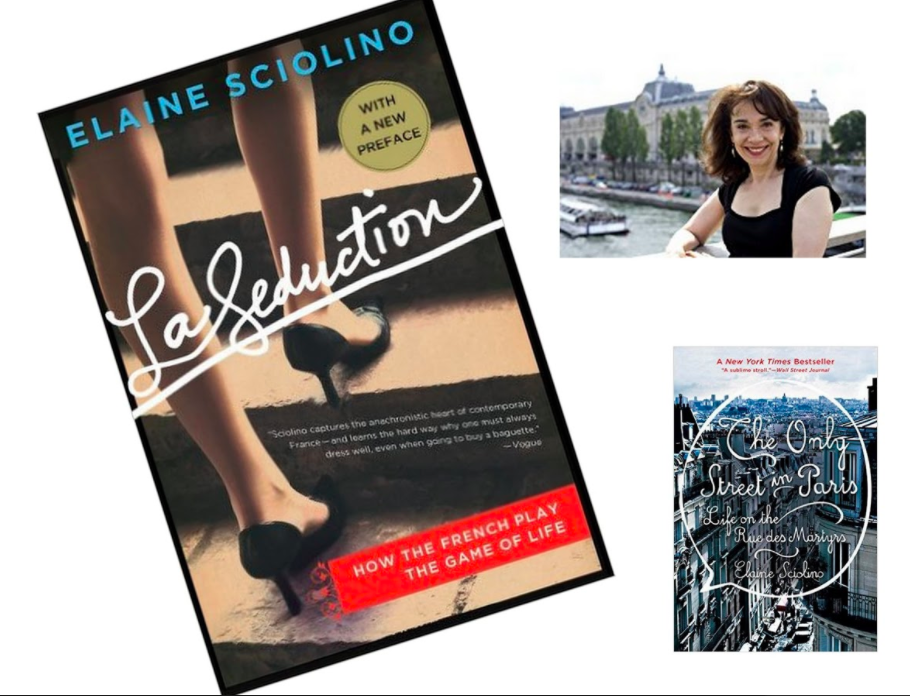 ~Sponsor of today’s episode is Plum Deluxe teas. Based in Portland, Oregon, and offering handcrafted, fresh, organic fair trade teas. Join the monthly tea club and receive an exclusive seasonal tea, free shipping and more for only $10/month. Learn more here. 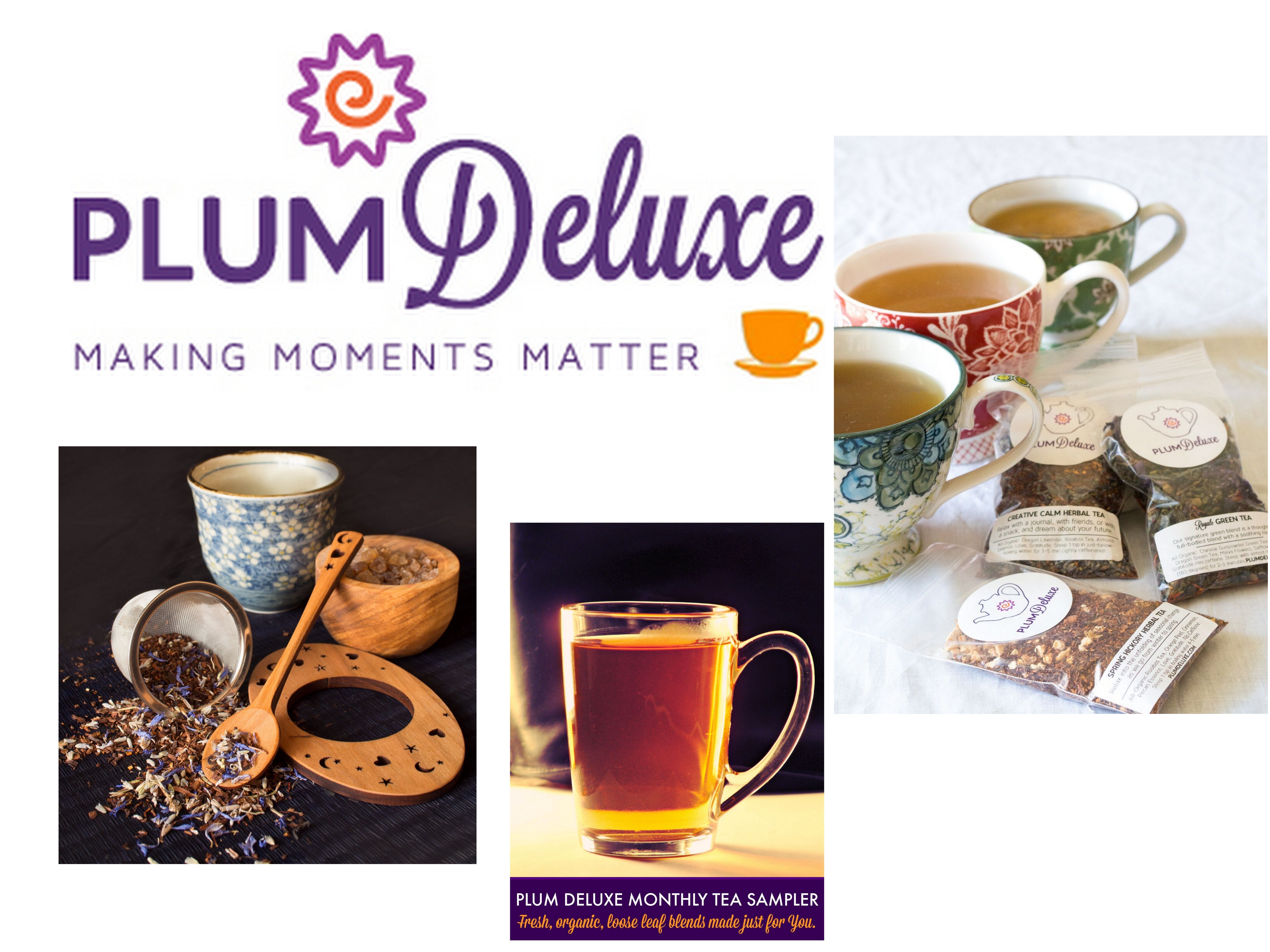
|
Mon, 6 February 2017
~The Simple Sophisticate, episode #141~Subscribe to The Simple Sophisticate: iTunes | Stitcher | iHeartRadio
Learn more about author Isabelle LaFleche::
~Discover more interviews with inspiring women on The Simple Sophisticate podcast:
Petit Plaisir:~Hidden FiguresBook: Hidden Figures: The American Dream and the Untold Story of the Black Women Mathematicians Who Helped Win the Space Race by Margot Lee Shetterly Film: see trailer below https://youtu.be/5wfrDhgUMGI ~Sponsor of today's episode is Plum Deluxe teas. Based in Portland, Oregon, and offering handcrafted, fresh, organic fair trade teas. Join the monthly tea club and receive an exclusive seasonal tea, free shipping and more for only $10/month. Learn more here. |
Mon, 30 January 2017
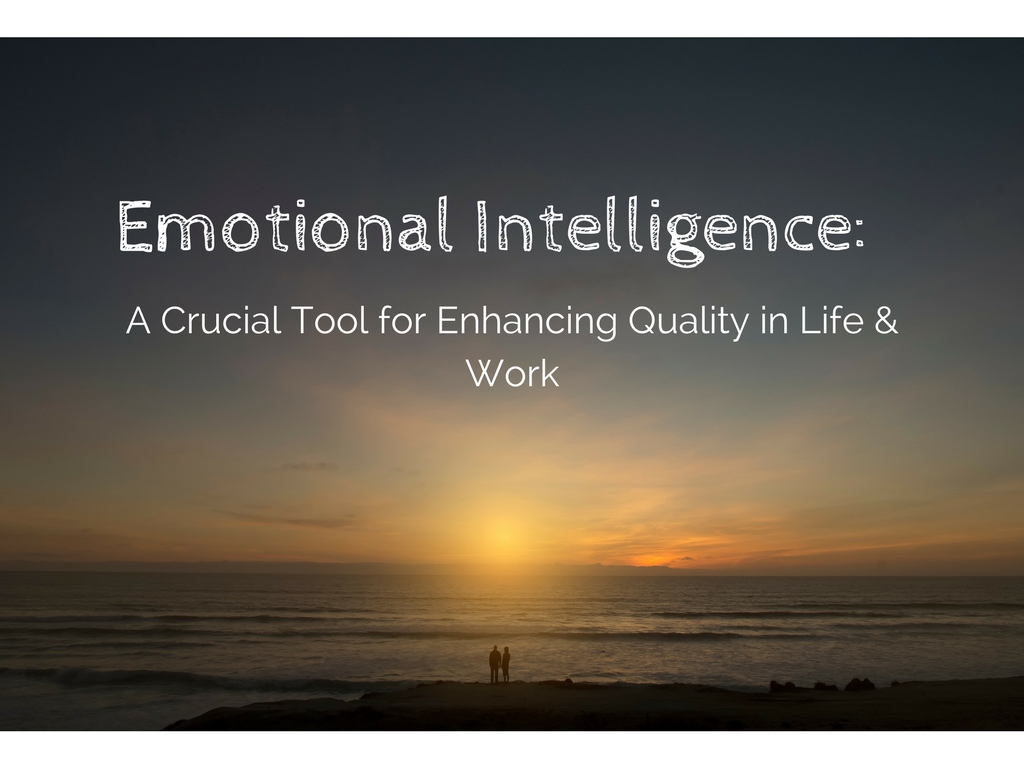
"Life circumstances have little to do with happiness because much happiness is under your control — the product of your habits and your outlook on life. Happiness is synthetic — you either create it, or you don’t." —Life Altering AwarenessThe uncertainties in life are vast. But to errantly ignore the ability to master the certainties is a mistake. Each of us is capable of cultivating a life that is fulfilling and attains true contentment no matter what changes life may bring by honing the tool of Emotional Intelligence. A term created by researchers Peter Salavoy and John Mayer and brought into the mainstream culture by Dan Goleman in his 1996 book Emotional Intelligence, EQ is often the detail forgotten about that upon tending to makes a significant difference in the quality of our lives no matter what the circumstances may be. And the beauty is each of us has the ability to improve our EQ. What is Emotional Intelligence you may be asking? Often broken down into three components and skills: Definition of EQ: 1. Emotional awareness, including the ability to identify your own emotions and those of others; 2. The ability to harness emotions and apply them to tasks like thinking and problems solving; 3. The ability to manage emotions, including the ability to regulate your own emotions, and the ability to cheer up or calm down another person. Let's look at it another way: EQ is divided into two components the Personal and Social. There are four abilities one will exhibit if they have a high emotional intelligence:
At the foundation of developing a strong EQ is the awareness of a balance that is often discussed here on TSLL. Exploring and understanding ourselves whilst respectfully and thoughtfully navigating the world around us whether in work or play is, when we look at what our lives are all about, what living well should be all about. Striking a healthy balance between ourselves and the relationships we build, and ensuring the relationships we build with ourselves and others are healthy, respectful, thoughtful, loving and kind. EQ is simple in theory, and eventually does become simple in practice, but initially, it will take time, attention and patience to build a muscle that may not have been worked in quite some time or ever. Now, as you will see below, there are many different characteristics. I suggest taking an EQ test (short or long) to determine where your strengths and weaknesses are as most of us may be quite proficient in some areas, but consciously or unconsciously weak in others. And with any eventual success, the first step toward improving is knowing where you need to improve and pat yourself on the back for what you already do well. But first, let's look at the carrot. What can be gained by improving our EQ? Benefits & Characteristics:
The benefit at the top of the list alone is the reason I have been actively researching and continuing to remain curious about the concept of EQ. As I continue to improve and apply the practices of being emotionally intelligent to my personal and professional relationships, I have begun to see remarkable improvements, which is why I want to share with you some tools I have found to work for me, have been suggested by my counselor and shared online via a handful of sources (all are listed at the bottom of the post). Tools to Enhance EQ:
Emotional Intelligence has been proven to be more vital and a more accurate determinate than IQ when it comes to long-term success in one's quality of life. And the good news is unlike one's IQ, EQ is a learned skill. It is something we can practice and improve upon no matter what our age. However, because it is a skill, as The Atlantic pointed out in 2014, it might also be used for nefarious purposes. In other words, once one becomes extremely proficient at observing and recognizing emotions both in themselves and others they can use the tools to manipulate for self-serving outcomes. However, to counter, as a friend pointed out recently as I was discussing the topic of today's post/episode, if indeed someone is abusing this skill, then are they truly Emotionally Intelligent? Because to return to the original definition of EQ, it involves a vast amount of empathy; the ability to understand and share the feelings of another. Life continues to reveal to me that quality is something that doesn't just occur, it is cultivated, it is conscious, it is requires consistency. Yes, it might be helpful if the improvements in our lives could occur by simply buying a particular product, a certain type of home or outfit, but the reality is no matter what clothes you wear, what size your home or what type of degree you have, knowing how to understand your emotions and observe them accurately in others followed by healthy action that respects who you are as well as those around you is the yeast of life. If you want to rise, if you want what you value to rise, invest in your emotional intelligence. Because when we do, beautiful moments in the everyday whether we are with others or in our own company will regularly manifest. ~Post Sources: Psychology Today, Mindtools & The Atlantic ~The Four Agreements by Don Miguel Ruiz
~SIMILAR POSTS FROM THE ARCHIVES YOU MIGHT ENJOY: ~A Powerful Couple: Boundaries & Vulnerability ~Why Not . . . Master the Art of Conversation? ~Why Not . . . Have That Difficult Conversation? ~Why Not . . . Avoid Unnecessary Stress?
~Petit Plaisir:~"The Power of a Dose of Nature", via The Wall Street Journal ~image from TSLL IG feed (below)
 ~The Simple Sophisticate, episode #140~Subscribe to The Simple Sophisticate: iTunes | Stitcher | iHeartRadioImage: source |
The Simple Sophisticate - Intelligent Living Paired with Signature Style

Categories
lifestylemoney
fashion
general
food
relationships
beauty
holidays
style
decor
etiquette
technology
dating
clothing
news
happiness
health
finances
self-help
feminism
french living
communication
inspiration
self-improvement
cooking
French-inspired
podcast
travel
entertaining
Archives
AprilMarch
February
January
December
November
October
September
August
July
June
May
April
March
February
January
December
November
October
September
August
July
June
May
April
March
February
January
December
November
October
September
August
June
May
April
March
February
January
December
November
October
September
August
July
June
May
April
March
February
January
December
November
October
September
August
July
June
May
March
February
January
December
November
October
September
August
July
June
May
April
March
February
January
December
November
October
September
August
July
June
May
April
March
February
January
December
November
October
September
August
July
June
May
April
March
February
January
December
November
October
September
August
July
June
May
April
March
February
January
December
November
October
September
August
| S | M | T | W | T | F | S |
|---|---|---|---|---|---|---|
| 1 | ||||||
| 2 | 3 | 4 | 5 | 6 | 7 | 8 |
| 9 | 10 | 11 | 12 | 13 | 14 | 15 |
| 16 | 17 | 18 | 19 | 20 | 21 | 22 |
| 23 | 24 | 25 | 26 | 27 | 28 | 29 |
| 30 | ||||||
Syndication

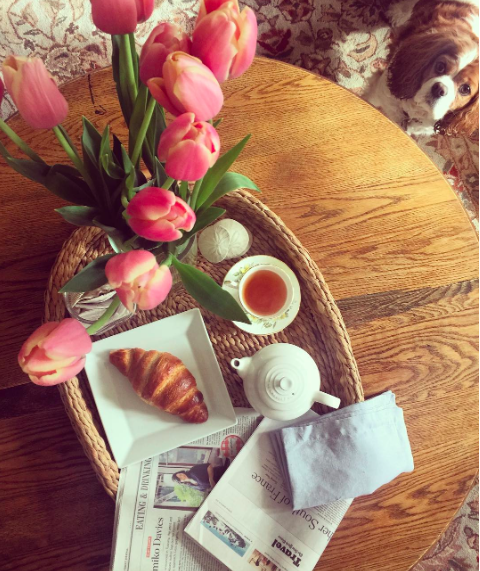

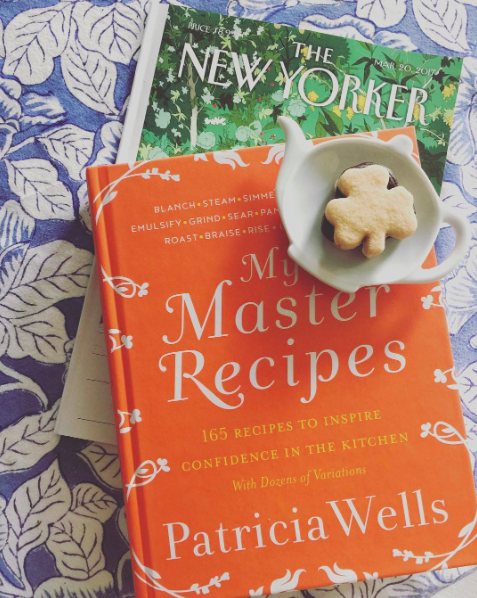

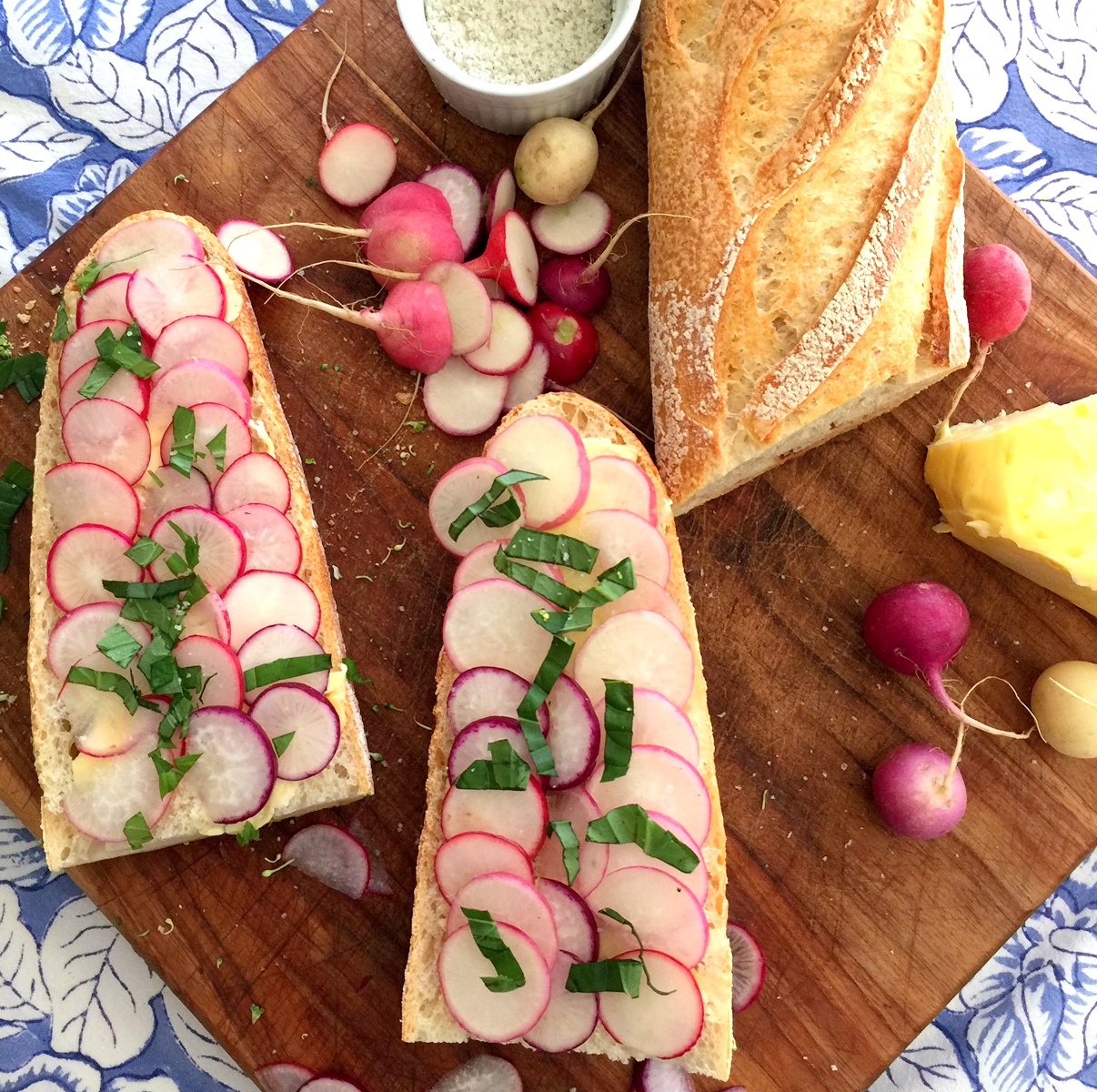



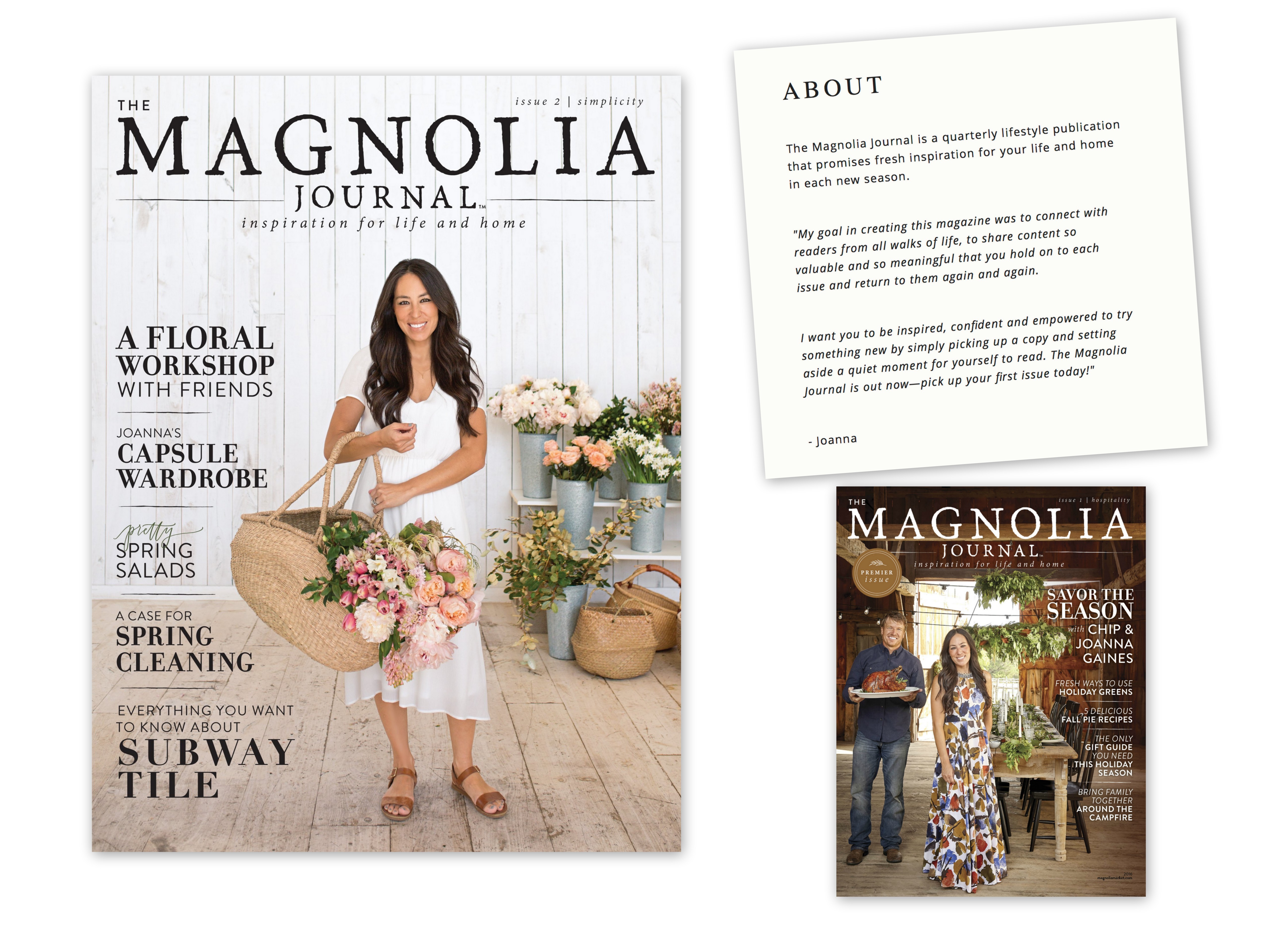

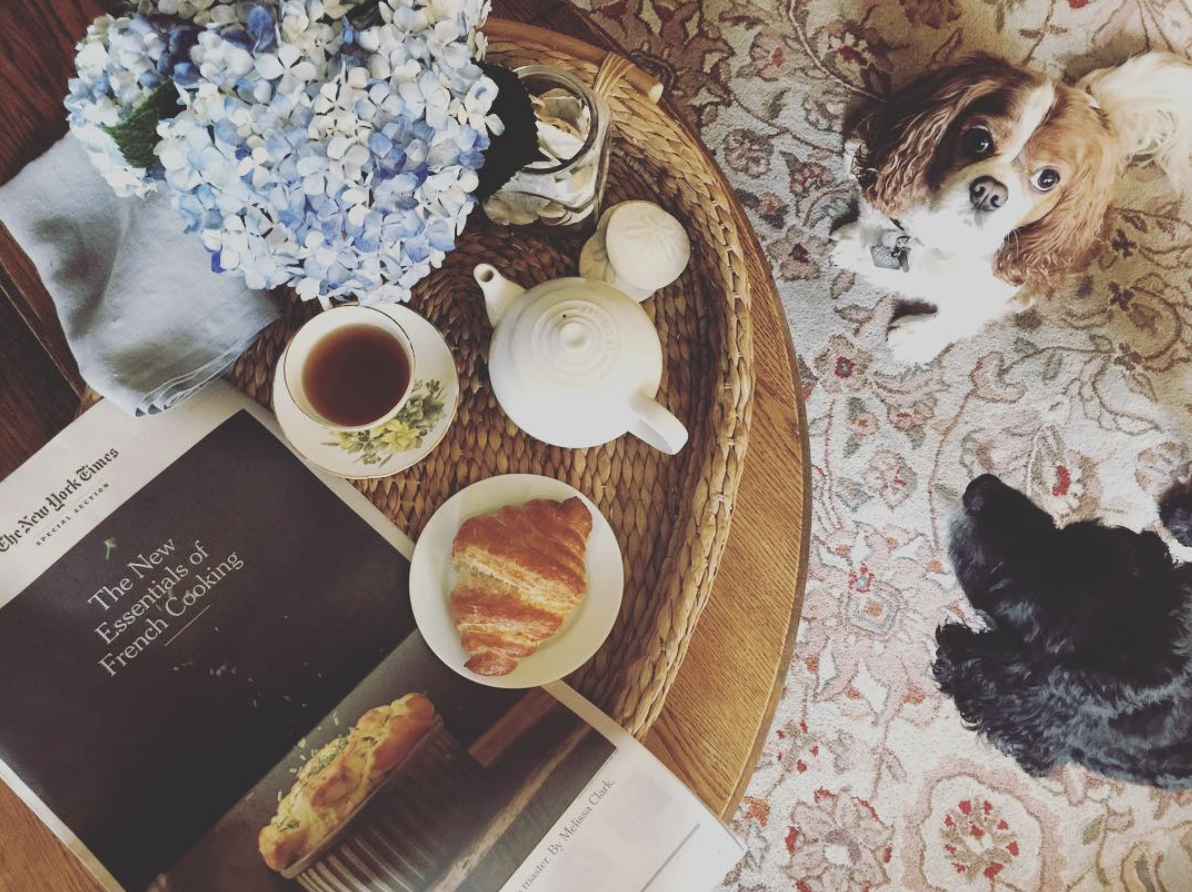

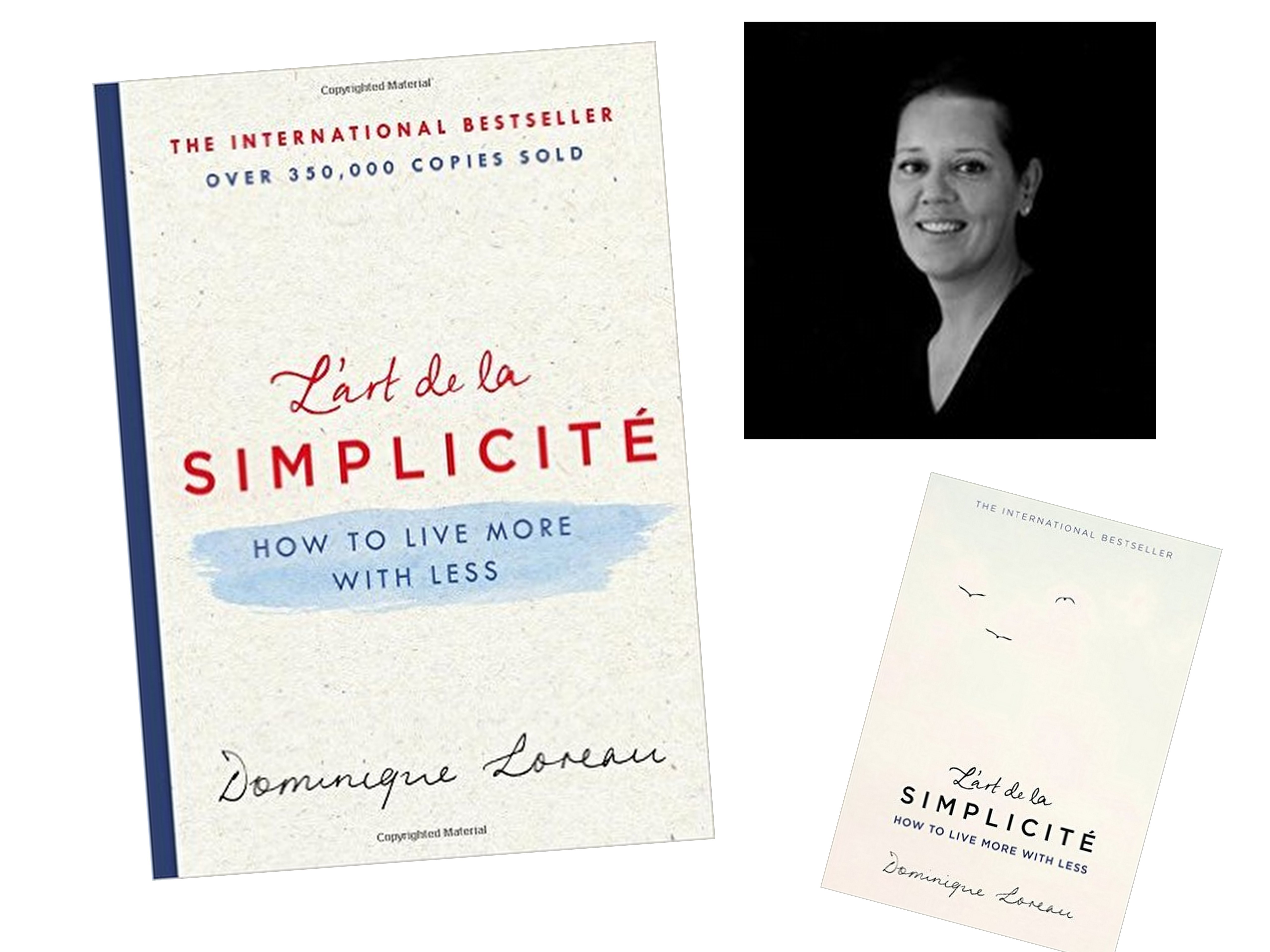
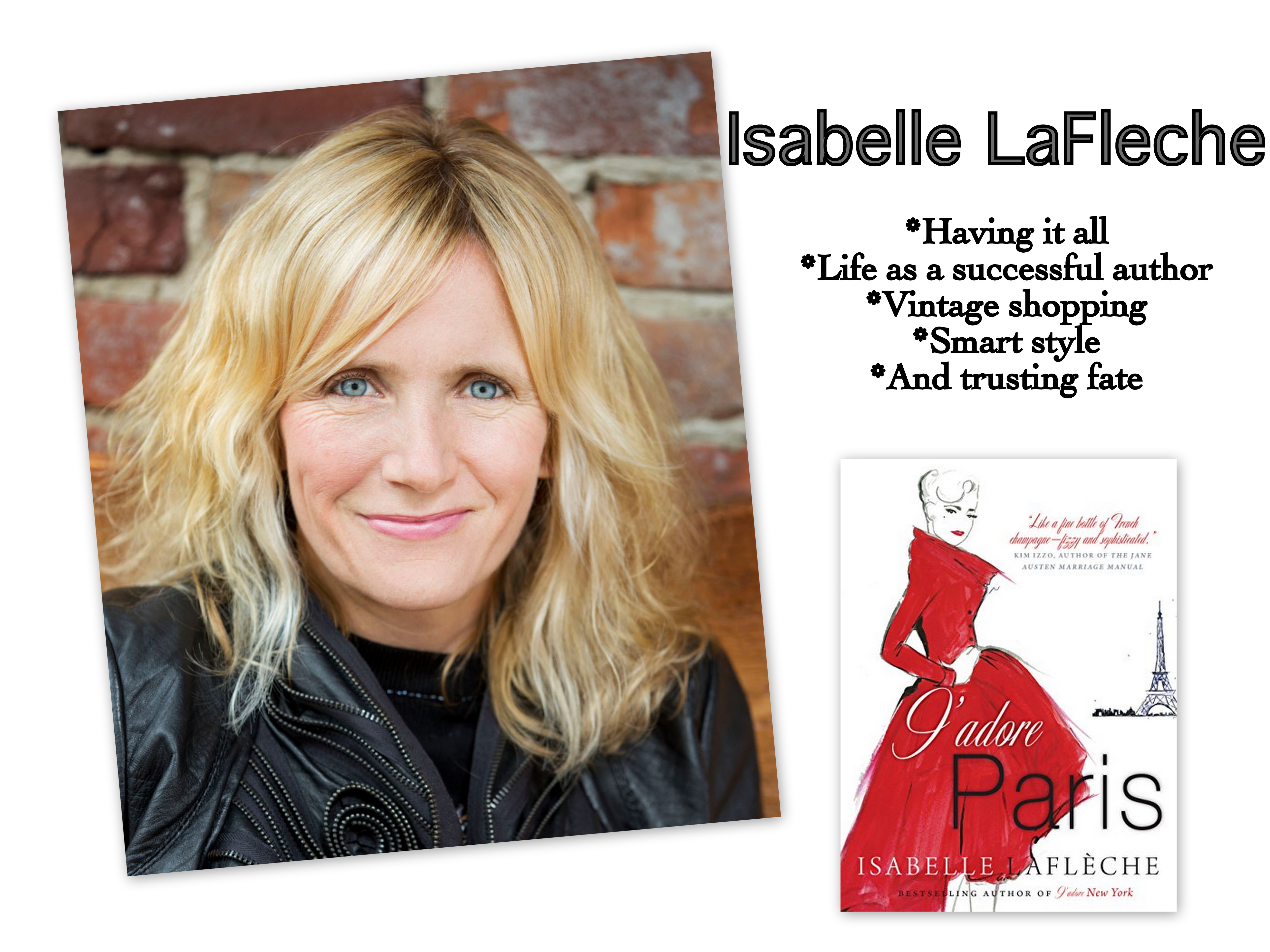 Montreal author Isabelle LaFlèche has been an inspiration to me for many reasons. One of which is her tenacity to let go of what she knew and leap into what she loved. All it took was a nudge from an unexpected stranger to remind her of the creative talent patiently waiting to be released.
Montreal author Isabelle LaFlèche has been an inspiration to me for many reasons. One of which is her tenacity to let go of what she knew and leap into what she loved. All it took was a nudge from an unexpected stranger to remind her of the creative talent patiently waiting to be released. 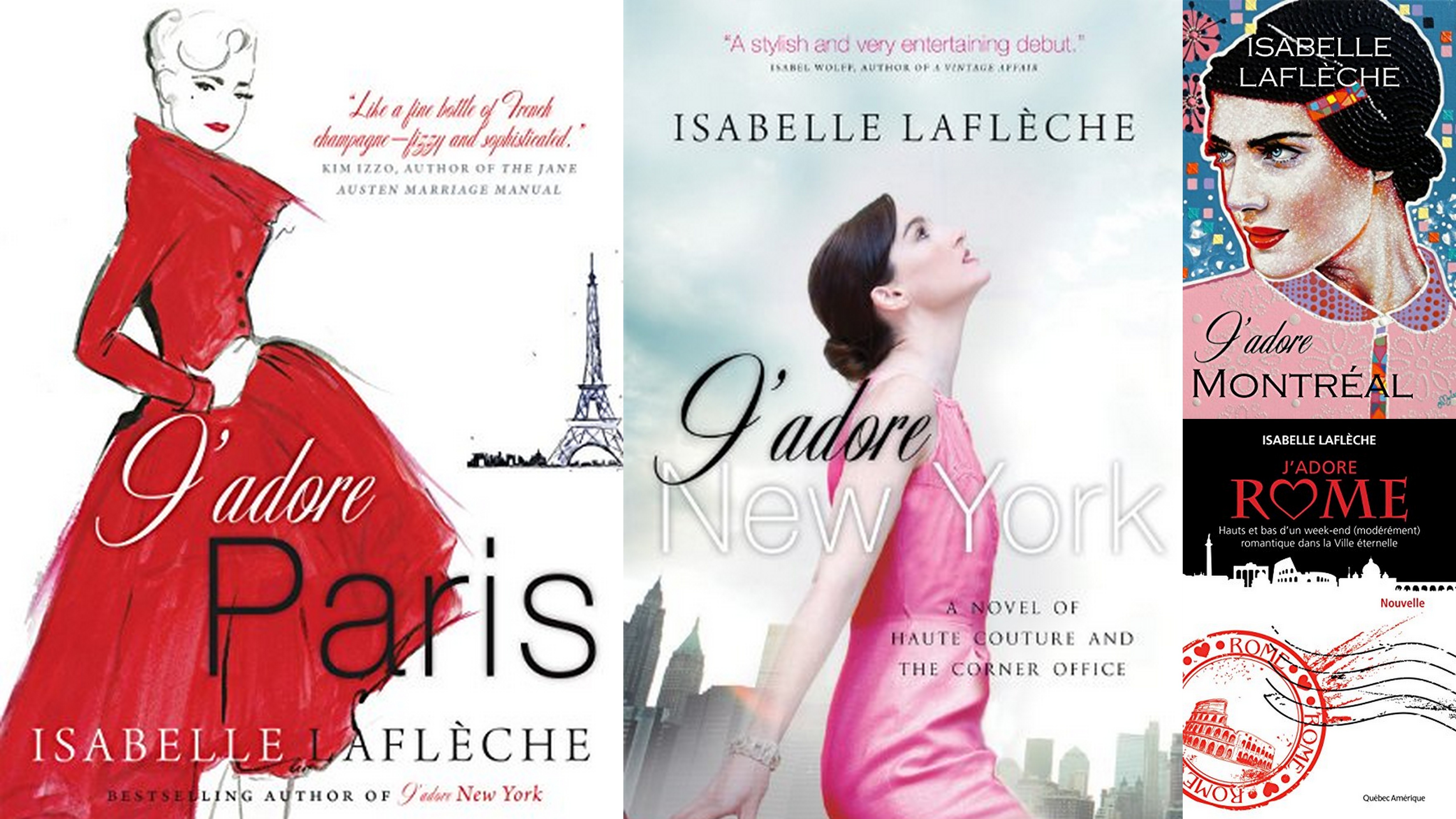 Tune into the interview where Isabelle shared the fateful meeting that changed her life in a matter of months, what it means to have it all, the gift and discovery of taking a risk and much more. Quotes, books and other ideas discussed during the interview:
Tune into the interview where Isabelle shared the fateful meeting that changed her life in a matter of months, what it means to have it all, the gift and discovery of taking a risk and much more. Quotes, books and other ideas discussed during the interview: